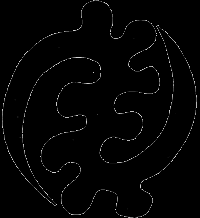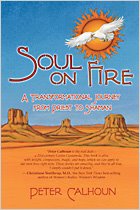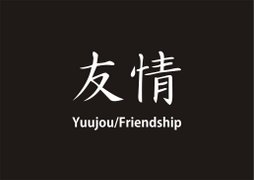I talked about the suicide to my colleagues. They described these conversations as "most terrible and hideous." And I tell them, well, at some point we have to face the dark side of life which is our shadow.
Of the human shadow, Carl Jung wrote: "Unfortunately there can be no doubt that man is, on the whole, less good than he imagines himself or wants to be. Everyone carries a shadow, and the less it is embodied in the individual's conscious life, the blacker and denser it is. If an inferiority is conscious, one always has a chance to correct it. Furthermore, it is constantly in contact with other interests, so that it is continually subjected to modifications. But if it is repressed and isolated from consciousness, it never gets corrected."
Ignorance of the shadow gives it power because once it comes to our awareness we begin to face it. Its power disappears gradually.
As I talk to close friends and family about it, I was surprised to know the number of people who have friends and relatives who have chosen this way to leave the world. In fact one of my very dear friends told me she had attempted suicide so many years ago.
A companion on the path wrote to me: "Suicide leaves everyone guilty of neglect… And beyond the guilt, I think we all recognize in our subconscious the extreme wish to "get out and do it now". It is focusing on the primal instinct of survival that blocks the human process of exploring suicide."
I feel blessed to be surrounded by friends with different experiences and who offer me such insights at times like this. I don't feel guilt about my colleague's decision to take her life. I feel a terrible sense of loss and waste. And as I reflect on this loss, I remember the words of Yun-Men Wen-Yen a Chinese Zen master who lived more than a thousand years ago.
"Life is precious; if you miss this chance, it may take a billion eons before you receive a human body again. If even a worldly man like Confucius said, "He who realizes the Tao in the morning can die content in the evening,"...Please do your best, and take good care of yourself."
Sunday, July 29, 2007
Saturday, July 28, 2007
Redeeming Takemoto
While the news was breaking about my colleague's death on Wednesday July 26 in Washington State, another tragedy was unfolding in California.
Danny Takemoto forgot his 11-month-old son in a Honda Odyssey minivan and went to work for more than five hours in Concord. The temperature exceeded 80 degrees. The day care called the baby's mother to report her son’s absence. When she called the husband at a little before 4 pm, he rushed to the minivan. He found the child strapped in his seat, dead.
Takemoto, who was sent to Contra Costa County Jail in Martinez, worked for a Siemens AG division.
We don’t know what caused Takemoto to forget his son in his car. Might this be stress related?
In 1992, a United Nations Report labeled job stress "The 20th Century Disease" and in 1996, the World Health Organization said it had become a "World Wide Epidemic."
The American Institute of Stress reports that “In California, the number of Workers' compensation claims for mental stress increased by almost 700 percent over eight years and ninety percent were successful with an average award of $15,000 compared to a national average of $3,420”
The National Institute of Occupational Safety and Health relates the experience of David in a manufacturing plant. He speaks for many American workers when he says: "Since the reorganization, nobody feels safe. It used to be that as long as you did your work, you had a job. That's not for sure anymore. They expect the same production rates even though two guys are now doing the work of three. We're so backed up I'm working twelve-hour shifts six days a week. I swear I hear those machines humming in my sleep. Guys are calling in sick just to get a break."
Northwestern National Life survey reports that 40 percent of workers say their job is “very or extremely stressful.”
The tendency to blame Takemoto for his carelessness is high. Empathisizing with Takemoto should reveal the horror he is going through. How is he facing his wife? How is he going to ever forgive himself?
And when we look at this event in its wider context, might this be the visible effects of what organizations are doing to the psyche of their employees?
In this specific case, I wonder what Siemens offering daycare to its employees will do to reduce stress for their workers? It is ironic that such a tragedy should happen on Siemens campus because the company is noted for its life-saving products.
Management should find out how much stress its employees are now experiencing. Many other Siemens employees may be silent victims of the effects of the same stressful workplace: reorganizations, meeting deadlines, and profitability. This should be a reminder that the geese that lay the golden eggs should be adequately taken care of. Takemoto’s innocent child's death will not have been in vain.
The news source
National Institute for Occupational Safety and Health
AIS on Job Stress
Danny Takemoto forgot his 11-month-old son in a Honda Odyssey minivan and went to work for more than five hours in Concord. The temperature exceeded 80 degrees. The day care called the baby's mother to report her son’s absence. When she called the husband at a little before 4 pm, he rushed to the minivan. He found the child strapped in his seat, dead.
Takemoto, who was sent to Contra Costa County Jail in Martinez, worked for a Siemens AG division.
We don’t know what caused Takemoto to forget his son in his car. Might this be stress related?
In 1992, a United Nations Report labeled job stress "The 20th Century Disease" and in 1996, the World Health Organization said it had become a "World Wide Epidemic."
The American Institute of Stress reports that “In California, the number of Workers' compensation claims for mental stress increased by almost 700 percent over eight years and ninety percent were successful with an average award of $15,000 compared to a national average of $3,420”
The National Institute of Occupational Safety and Health relates the experience of David in a manufacturing plant. He speaks for many American workers when he says: "Since the reorganization, nobody feels safe. It used to be that as long as you did your work, you had a job. That's not for sure anymore. They expect the same production rates even though two guys are now doing the work of three. We're so backed up I'm working twelve-hour shifts six days a week. I swear I hear those machines humming in my sleep. Guys are calling in sick just to get a break."
Northwestern National Life survey reports that 40 percent of workers say their job is “very or extremely stressful.”
The tendency to blame Takemoto for his carelessness is high. Empathisizing with Takemoto should reveal the horror he is going through. How is he facing his wife? How is he going to ever forgive himself?
And when we look at this event in its wider context, might this be the visible effects of what organizations are doing to the psyche of their employees?
In this specific case, I wonder what Siemens offering daycare to its employees will do to reduce stress for their workers? It is ironic that such a tragedy should happen on Siemens campus because the company is noted for its life-saving products.
Management should find out how much stress its employees are now experiencing. Many other Siemens employees may be silent victims of the effects of the same stressful workplace: reorganizations, meeting deadlines, and profitability. This should be a reminder that the geese that lay the golden eggs should be adequately taken care of. Takemoto’s innocent child's death will not have been in vain.
The news source
National Institute for Occupational Safety and Health
AIS on Job Stress
Labels:
child death in car,
daycare,
Siemens,
stress in the workplace,
Takemoto
Friday, July 27, 2007
Suicide
We entered seminary together in the fall of 2003. Over the years I took several classes together with her.
I wrote a joint paper with her in the winter of 2005 when we took the last UU Polity course that Peter Raible taught.
I remember her forthrightness, her humor, her heart for the poor. She volunteered at Tent City on several occasions. She participated in her church where she touched many lives.
She was a single mother of a 12-year-old boy. I remember she showed me her son's picture and told me how much she loved him.
I was at the grieving ceremony on Thursday night at the Woodinville UU church where I lighted a candle for her.
I am sad that she chose that final and absolute way to leave this world. I hope that her death will not be in vain. That through her death we will go deeper in our understanding of what it is to be there for one another, what it is to be a true community, in a suicide economy.
I wrote a joint paper with her in the winter of 2005 when we took the last UU Polity course that Peter Raible taught.
I remember her forthrightness, her humor, her heart for the poor. She volunteered at Tent City on several occasions. She participated in her church where she touched many lives.
She was a single mother of a 12-year-old boy. I remember she showed me her son's picture and told me how much she loved him.
I was at the grieving ceremony on Thursday night at the Woodinville UU church where I lighted a candle for her.
I am sad that she chose that final and absolute way to leave this world. I hope that her death will not be in vain. That through her death we will go deeper in our understanding of what it is to be there for one another, what it is to be a true community, in a suicide economy.
Labels:
building community,
Suicide,
suicide economy
Subscribe to:
Posts (Atom)












